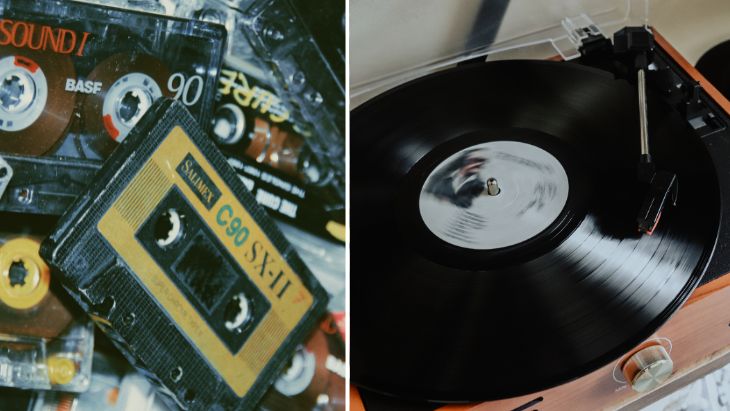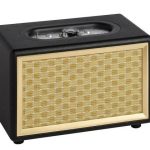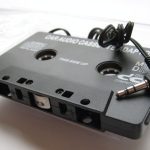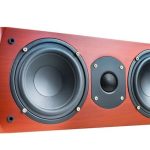Analog audio storage allows users to enjoy warm and natural sound quality due to the absence of digital compression. However, most analog audio formats tend to degrade over time and are less convenient in terms of accessibility and portability.
Cassettes and vinyl records are both analog audio formats that are used for music playback. However, considering that both formats are not quite familiar to the younger generation, it can be tough to tell the difference between the two vintage audio formats.
In this article, we’ll discuss cassette vs vinyl records in detail and outline the advantages and disadvantages of each audio format.
Let’s begin!
What is a Cassette?
Cassettes, also known as compact cassettes, were first introduced in the early 1960s by Philips. These audio devices are compact and portable, and they became popular in the 1970s and 1980s. On average, cassettes typically have a maximum playing time of around 30 or 45 minutes per side, but C60, C90, and C120 cassettes are also available.
The sound quality of cassettes can vary depending on the quality of the cassette tape and the playback equipment used. Generally, the cassettes consisted of two small reels of tape housed inside a plastic casing, and they were played on a cassette deck or portable player. However, Compact cassettes were replaced by CDs, which become the most popular audio and music format in the 1990s.
Uses of Cassettes
The purpose of compact cassettes was to record audio and duplicate copies of the original music. They were also designed to replay audio recordings on a dedicated cassette player or a compatible PC recording device.
Other uses of cassettes include;
- Music storage and playback
- Voice recording in VHS tapes
- Data storage in computers
- Distribution of audio material (e.g. audio books, language courses)
- Recording historical data and speeches
Advantages of Cassettes
- Portability – Generally, cassettes are small and lightweight, which means they are easy to carry around.
- Universal compatibility – Cassettes can be played on a wide range of devices, including portable players, boom boxes, car stereos, etc.
- Improved durability – Cassettes tend to be more resistant to damage compared to vinyl records and CDs.
- Budget-friendly – Cassettes are generally cheap compared to other analog audio formats.
- Customization – Cassettes allows user to create and personalize mix tapes to their liking.
Disadvantages of Cassettes
- Inferior sound quality – Compared to digital audio formats such as MP3, the sound quality of compact cassettes is way below average.
- Durability could be better – Although they tend to have better durability vinyl records, cassettes still wear over time, leading to degradation in sound quality.
- Limited convenience – Cassettes require manual rewinding and flipping to play both sides of the tape.
- Limited storage capacity – Compact cassettes have limited capacity as compared to modern storage methods.
- Out-dated – Cassettes are no longer as widely used or supported as modern audio formats. This makes it challenging to find players and replacement tapes.
What is Vinyl?
Vinyl records, also known as phonograph records, were first introduced in the early 1900s and were the primary medium for music playback until the advent of cassettes and CDs. Vinyl records are larger and heavier than cassettes and have a maximum playing time of around 23 minutes per side.
Vinyl records come in a flat, circular disc composed of polyvinyl chloride (PVC) with an inscribed, spiral groove. The groove often carries the data or audio information that is played on a turntable. Vinyl records were popular media for listening to music from the early 1900s to the 1980s, before being largely replaced by compact discs and digital formats.
The sound quality of vinyl records is considered by many to be superior to that of cassette tapes. This is because vinyl records can reproduce a wider range of frequencies and have a warmer, more natural sound. And despite their decline in popularity, vinyl records have remained popular among music enthusiasts and collectors, who appreciate their warm, analog sound quality and tactile experience.
Applications of Vinyl
Much like cassettes and CDs, the primary purpose of vinyl records was to store and distribute music. And although they were technically replaced by compact discs, manufacturers have continued to produce and distribute vinyl records worldwide.
Common uses of vinyl records include;
- Music playback
- Audio recordings
- Decorative items
- Art projects and installations
- Enhancing sound effects and audio production in various applications
- High-fidelity audiophile listening.
Advantages of Vinyl Records
- Unique sound quality – Vinyl records deliver a warm, rich, and full sound, and are popular among audiophiles.
- Tangibility – Vinyl records act as a form of physical connection to music, which helps to enhance the listening experience.
- Longevity – When cared for and stored properly, vinyl records can last for decades
- Collectability – Vinyl records are collectible, with rare or limited editions fetching a good amount of money on the market.
- Nostalgia feelings –Vinyl records often evoke nostalgic feelings, and most people associate them with a bygone era of music listening.
Disadvantages of Vinyl Records
- High cost – Vinyl records are somewhat more expensive than cassettes
- Require specialized equipment – To play vinyl records, you’ll require specialized equipment such as a turntable and an amplifier.
- Higher maintenance – Vinyl records need to be properly maintained to prevent damage and degradation of sound quality.
- Delicate – Vinyl records are also highly fragile and can break or scratch easily.
- Bulky – Vinyl records are heavy and large, so they are not as portable as cassettes.
Similarities Between Cassette and Vinyl
Both cassette tapes and vinyl records are analog audio formats, which mean they store and play back music using physical means rather than digital ones. This also implies that both formats are subject to some degree of degradation over time. In addition, the sound quality of the music can be affected by factors such as wear and tear on the physical media, and the quality of the playback equipment used.
Another similarity between cassette tapes and vinyl records is that both formats have a relatively small capacity when compared to digital formats such as CDs or MP3s. This means that they are typically used to store individual albums or EPs, rather than large collections of music.
They were also popular in the past, and have since been replaced by digital music formats. Furthermore, both cassette tapes and vinyl records can be considered collectible items, and they have a dedicated fan base of enthusiasts who appreciate the unique aesthetic and sound qualities of each music format.
Which is Better- Cassette or Vinyl?
Whether vinyl records or cassette tapes are ‘better’ depends on your personal preferences and what you are looking for in a music format. As such, it is almost impossible to give a clear-cut answer on what format is superior.
However, Vinyl records are considered by many to have better sound quality compared to cassette tapes. This is because they can reproduce a wider range of frequencies and have a warmer, more natural sound. Vinyl records have experienced a resurgence in popularity in recent years, with many music enthusiasts appreciating their tangible nature and unique sound characteristics.
On the other hand, cassette tapes are smaller, more portable, and relatively inexpensive. In addition, cassettes deliver audio in its most original form, plus they are not prone to hisses and scratches. What’s more, you can play cassettes in most media without the need for specialized equipment such as a CD player or an auxiliary port.
Overall, if sound quality is your top priority and you don’t mind the larger size, expense, and maintenance that comes with owning vinyl records, then vinyl may be the better choice for you. However, if portability and affordability are more important to you, then cassette tapes may be the better choice.
Michael Evanchuk is a San Francisco-based sound engineer with 20 years’ experience installing, troubleshooting, and repairing commercial, automotive, and household sound equipment. Evanchuk owns an auto stereo center, where he offers highly competitive car audio installation and repair services. He has written dozens of articles on different sound engineering topics, all of which have been published in leading journals, blogs, and websites.





